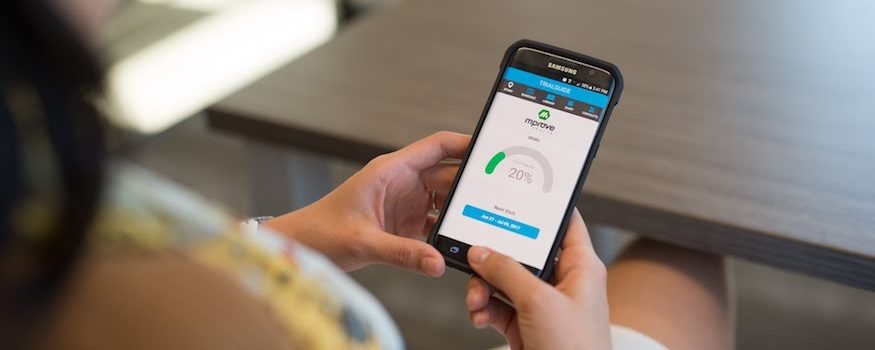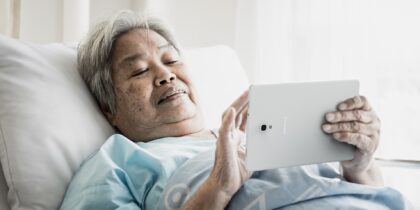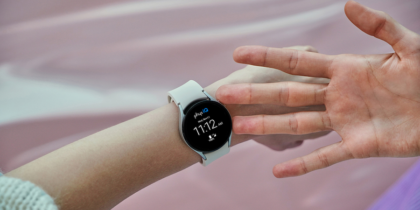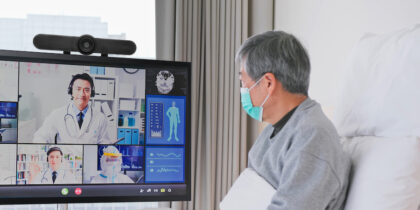Research has shown that the patient dropout rate in a phase III clinical trial can be 30 percent or higher. That’s disheartening to both pharmaceutical sponsors and contract research organizations (CROs) who depend on trial completion for their data analysis and, ultimately, FDA approval of the study intervention for market. Not only are these trials expensive to conduct, it also takes time and money to recruit patients that can meet all of the requirements.
Patient compliance and adherence to the study protocol is equally as important to patient retention. Did patients follow the protocol? Did they show up for their study visits as scheduled? Did they enter data into electronic patient reported outcome (ePRO) diaries as instructed? Do they stay engaged and participate from the start of the trial until the end. A poor patient experience, maybe as a result of limited support and resources from the sponsor and site staff, can make it challenging for patients to fulfill all their study requirements.
mProve Health offers a mobile technology solution for these problems that plague sponsors and CROs. That’s why recently one pharmaceutical company approached them at the start of a phase III clinical trial — a five-year study that spanned several countries and included 1,500 patients. In addition to using mProve Health’s patient engagement app, called mPal, they also wanted to provision patients with mobile devices to use the app at home, to provide them study visits and medication reminders, along with access to other important study information and resources in between study visits.
Create a VR Healthcare Pain Management Program
Explore the key drivers of using VR for pain management and get tips for implementation. Download Now
“In managing studies for top pharmaceutical companies, we are often asked to provision patients with mobile devices, allowing those without a personal device access to use our app for ePRO and patient engagement,” said Mindy Gruba, new product development lead for mProve Health. “A top consideration to ensure a successful user experience is carefully selecting devices that patients are familiar with across the globe. The Android operating system has captured roughly 85% of the worldwide market, making Samsung devices a top choice for our clients’ studies.”
Solution: Bringing Mobile Devices and Apps to Life Science Companies
For this trial, mProve Health partnered with Integron, a managed services provider (MSP), headquartered in Rochester, New York that works with companies in the health sector on projects that use connected devices.
Like mProve, the reach of Integron is also global. “This trial required 1,500 devices at 70 sites in four countries, sent out by the dozens each week on a rolling basis as participants get added to the trial,” explains Chris Kuntz, vice president of marketing and strategy at Integron. “Our work ensures that the device is connected, secured and operates easily for patients,” he said. That work is essential to trial managers who look to Integron to provide the staging, kitting and delivery, and management of devices.
With Integron focused on the logistics and operation of the devices, mProve can concentrate on the software and patient needs. For this trial, patients will use the mProve Health app to complete e-diaries on the device. They’ll also get reminders and study-specific messages about doctor visits and medications, as well as other materials that will encourage compliance and retention.
For any trial, data integrity and security is of utmost importance. Software on the devices is locked so participants can only use them to for trial-related activities. But the devices themselves remain connected so participants can stay online whether at home or on the go. However, because of Samsung Knox, which offers defense-grade security built in to the device from the chip-up, the devices and the information they contain remain secure. This high level of compliance ensures that both patient information and the data gathered by the trial stay safe.
Scalability: Matching the Needs of Any Size Trial and Any Patient Community
Since Integron works with trials of various size, the ability to scale is essential. Says Kuntz, “Applying mobile device management (MDM) to Samsung’s products is easy to do and allows us to rapidly support projects as they roll out and scale up or down.” mProve also matches the needs of any size trial. “Our process is extremely scalable and can be used in virtually any study. Our app is easily configured to meet the needs of any trial,” Gruba explains. Part of that scalability means choosing devices that are easy to use and readily available. Samsung is a brand of choice outside the US, making it possible to procure and provision these devices locally for our clients’ non-US research sites, which cuts down cost and transit time,” she says.
No matter the size or scope of the trial, the point is to entice patients to engage using a mobile device. That makes choosing the right device crucial to delivering a better patient experience. “If your goal is retention and compliance, then you have to pick the right device. You want it to be easy for the research site to provision and intuitive for the patient to use on their own,” says Gruba.
Integron consulted with Samsung to pick the best device for this trial, ultimately choosing Samsung’s value-tier smartphones. The device ultimately chosen depends on the specific requirements of the trial as well as characteristics of the patients. Device choice focuses on possible physical constraints, such as dexterity impairments, and age of participants, as older patients may have visual impairments and require a larger screen size. Location of the trial also matters, since it must be determined whether the devices are available in the countries where the trial is held or if they can be imported. Device end of life is also considered, since the device must be available and supported throughout the duration of the study. In the end, cost, usability and durability are the factors trial leaders care about most. The biggest reasons for choosing Samsung devices for this particular trial were cost and ease of use, due to the size and scope of the trial.
For this trial, Integron handled the logistics associated with the smartphones, including sourcing, provisioning, configuration, validation, kitting, and connectivity. Integron provided these services throughout the entire clinical trial process, including pre-ordering the devices from Samsung, configuring and loading the devices with the mProve Health app, loading and configuring the MDM software, validation, preparing the devices in kits with instructions on use, and then ship them to the correct trial site. Once the devices are in patient hands, Integron’s solution makes it easy to continually update content, manage software security features.
“When devices are intuitive and the software works like it’s supposed to, that results in fewer support calls,” says Kuntz. “The combination of the Samsung device, device management and connectivity services from Integron, which ensures connectivity regardless of patient location anywhere across the globe, and mProve’s user-friendly app makes for a seamless patient experience.”
Results: Improving Patient Experience and Boosting Retention in the Study
“The life sciences industry can be pretty conservative,” says Gruba, “but they’re seeing the value of mobile engagement apps as more case studies deliver evidence that these solutions improve study completion and compliance. Offering a single app that combines ePRO with patient engagement strategies should be the gold standard.
This particular trial is in the early stages, but mProve Health has conducted case studies with other trials and have found as high as an 80 percent improvement in retention. Those are the kinds of numbers that pharmaceutical companies and CROs can’t ignore. And given the high stakes, chances are they won’t.
“It’s expensive to run clinical trials. Recruiting patients into the study is challenging. Anything you can do to reduce withdrawal rates and increase compliance is a huge value add.” Gruba concludes.
CROs see the benefits of how technology in healthcare can be used to increase patient retention. Learn more about how mobile devices are transforming the effectiveness of clinical trials.








